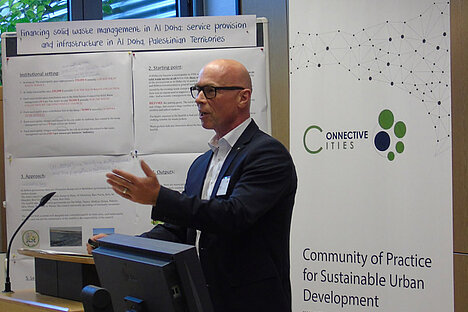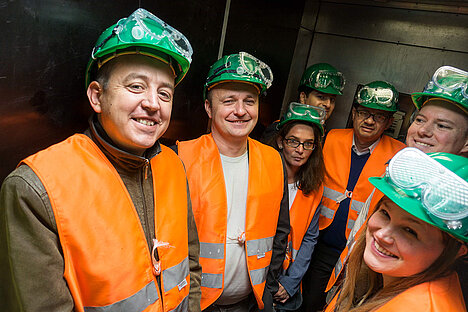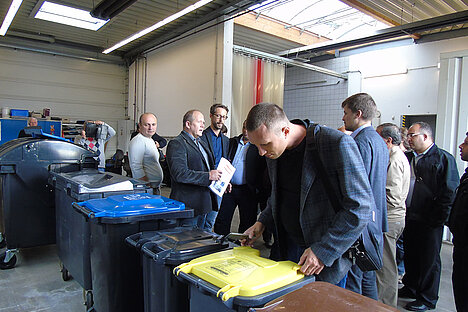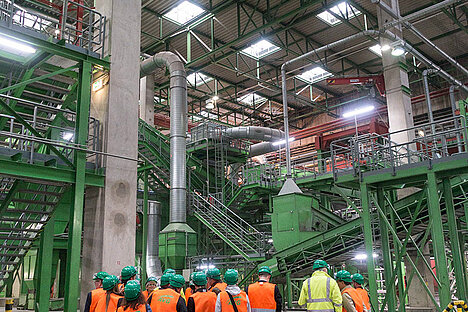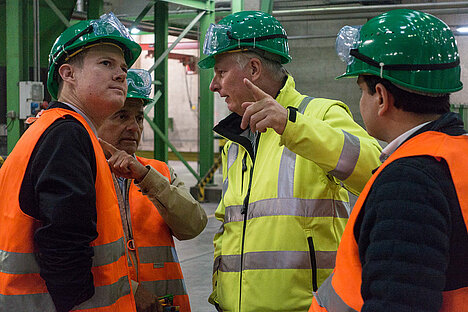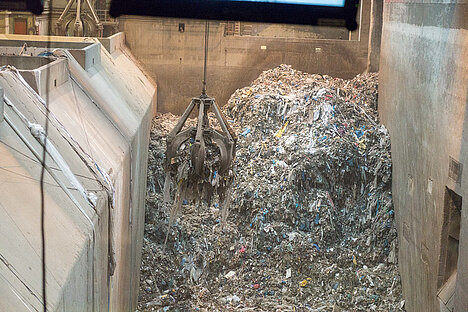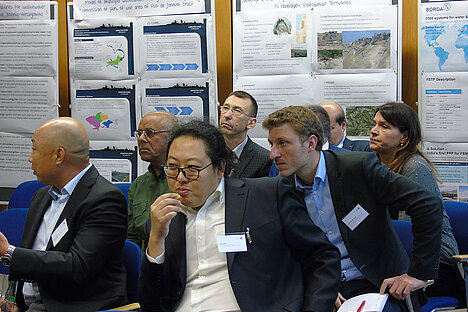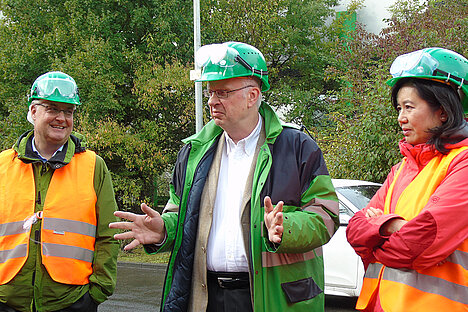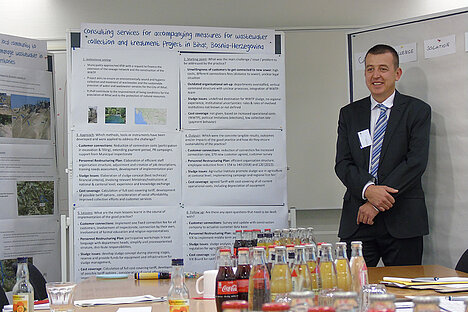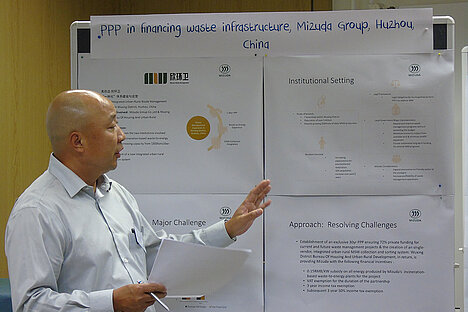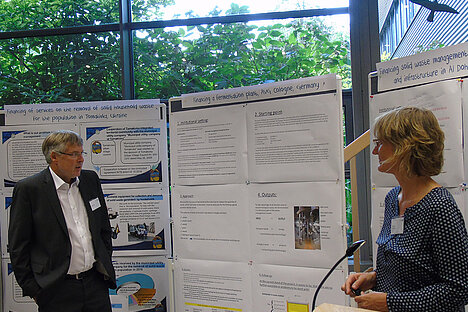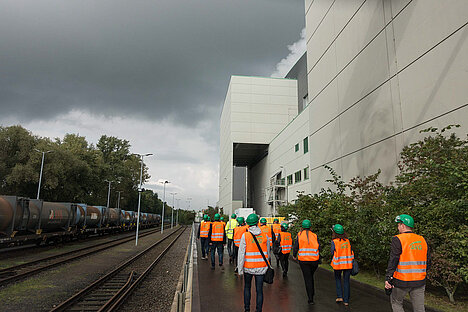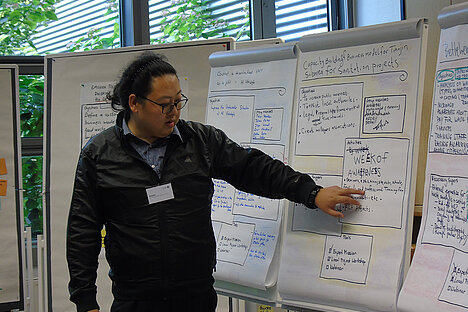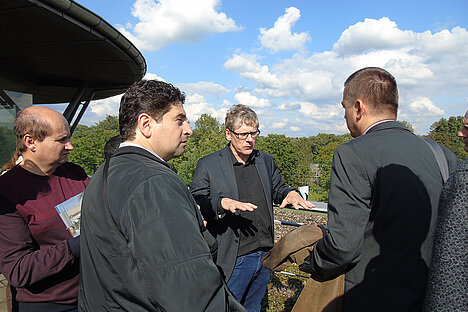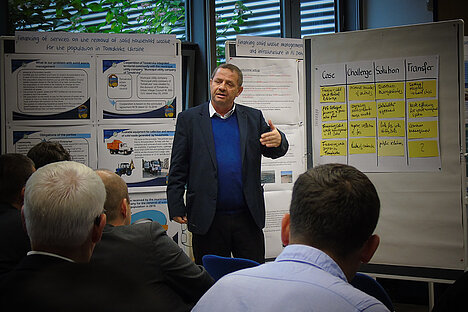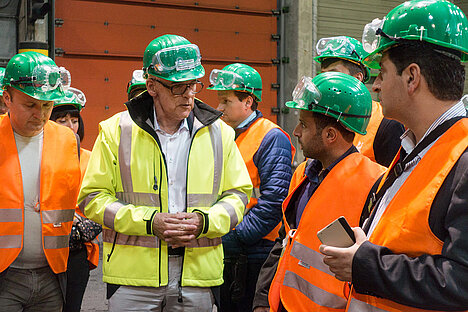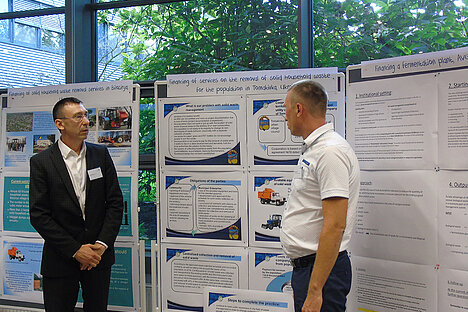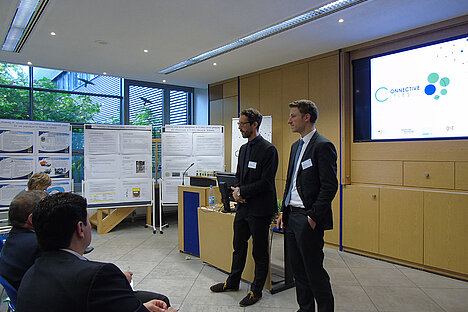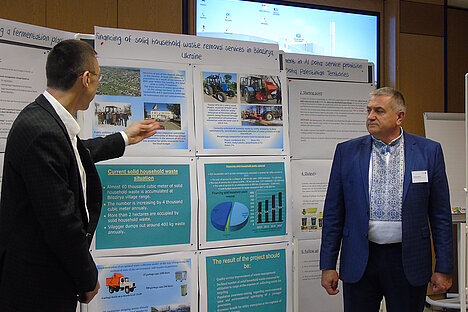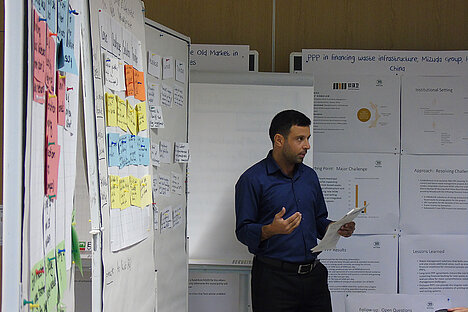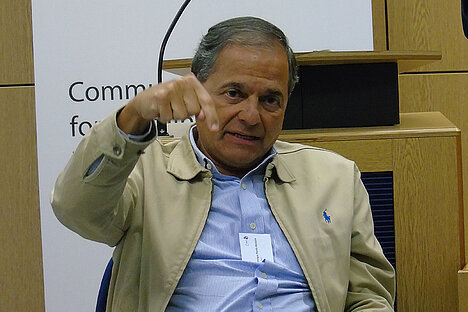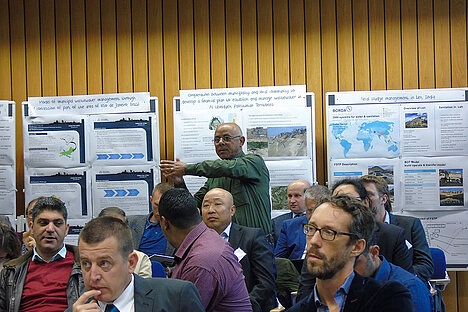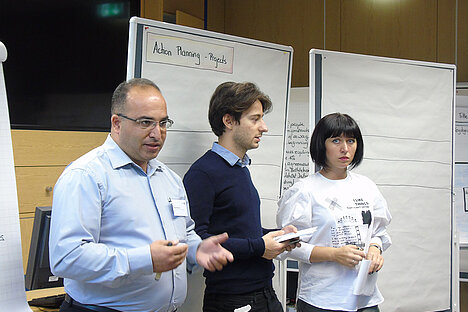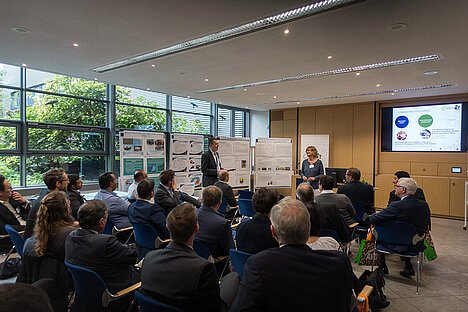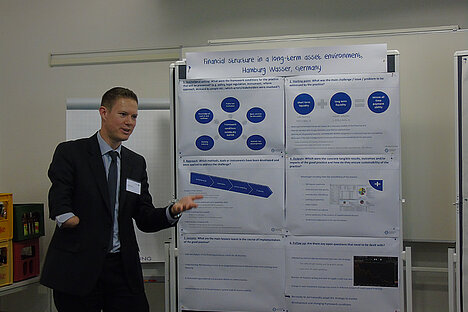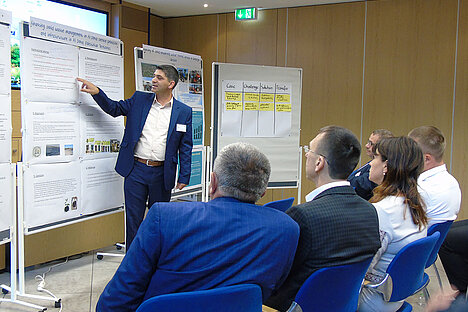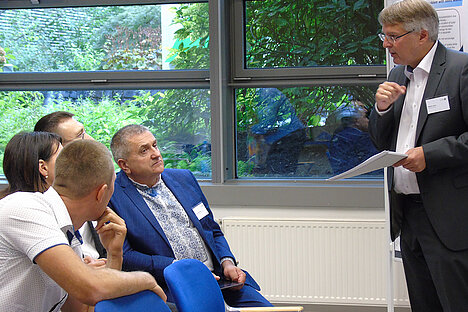- DE |
- EN
Connective Cities Dialogue Event in Cologne
Overview
Major urban areas around the world face the severe challenge of managing and financing municipal sanitation services, especially in the field of waste and wastewater management. In many countries several tasks related to basic services are in the process of being transferred to or already fall under the responsibility of municipalities. However, this transfer of responsibilities does often not go hand in hand with the simultaneous transfer of structures, financial resources and room for maneuvers. Furthermore, the credibility of cities among their citizens often depends on very concrete experiences with core services which the municipalities are supposed to offer. Here, municipal companies which are assigned with the provision of such municipal services play a key role as the quality of such service provision strongly influences the performance and livability of a city.
The international exchange platform Connective Cities and its initiators, the Deutsche Gesellschaft für Internationale Zusammenarbeit (GIZ) GmbH, the German Association of Cities and Engagement Global / Service Agency Communities in One World, organized a Dialogue Event on “Financing mechanisms for municipal sanitation services - ensuring sustainable local service provision and infrastructure” from 18 to 20 September 2017 in Cologne, Germany to specifically look into good practices, challenges and solutions to this crucial topic. The event was organized in collaboration with the City of Cologne and Cologne’s relevant municipal companies dealing with sanitation issues. The exchange aimed at showing the possibilities of planning and implementing financing models in different local contexts, checking the regional applicability of the presented solutions and to discuss the respective challenges.
The dialogue event was geared towards both German and international municipal actors from Bosnia, Brazil, China, Morocco, Palestinian Territories and Ukraine with an interest in and first-hand experience in financing of municipal services in waste and wastewater management. All participants engaged proactively in the international dialogue by presenting their experience, showcasing examples of good practices in their municipality and/or identifying concrete challenges and needs they face.
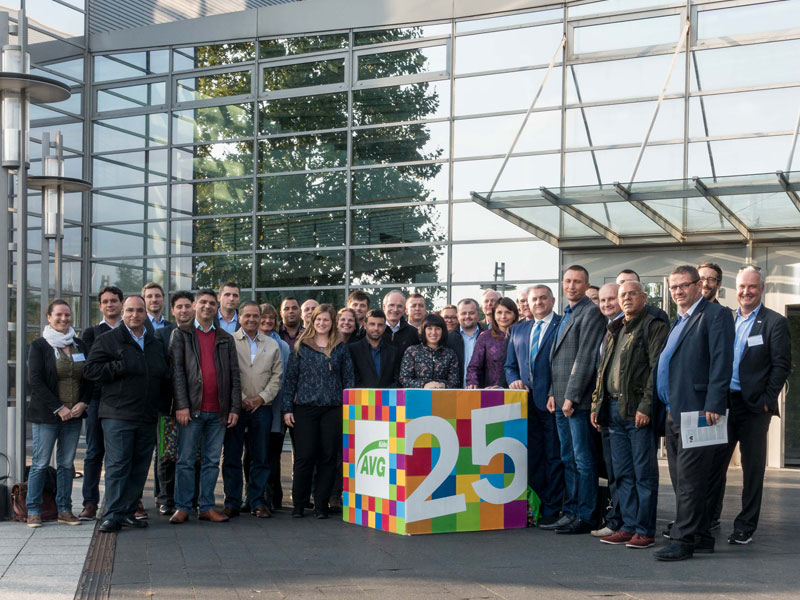
Program
Event Programme
Background Paper
Keynotes
Christoph Busch, AVG Cologne, Germany & Jürgen Becker, StEB Cologne, Germany
Financing waste and waste water services and infrastructure in a German City
André Fraga, City of Salvador, Brazil
Financing waste and waste water services and infrastructure in Brazilian cities
Wang Dai, Tianjin Academy of Environmental Sciences, China
Green Financing and Green PPP implementation in China
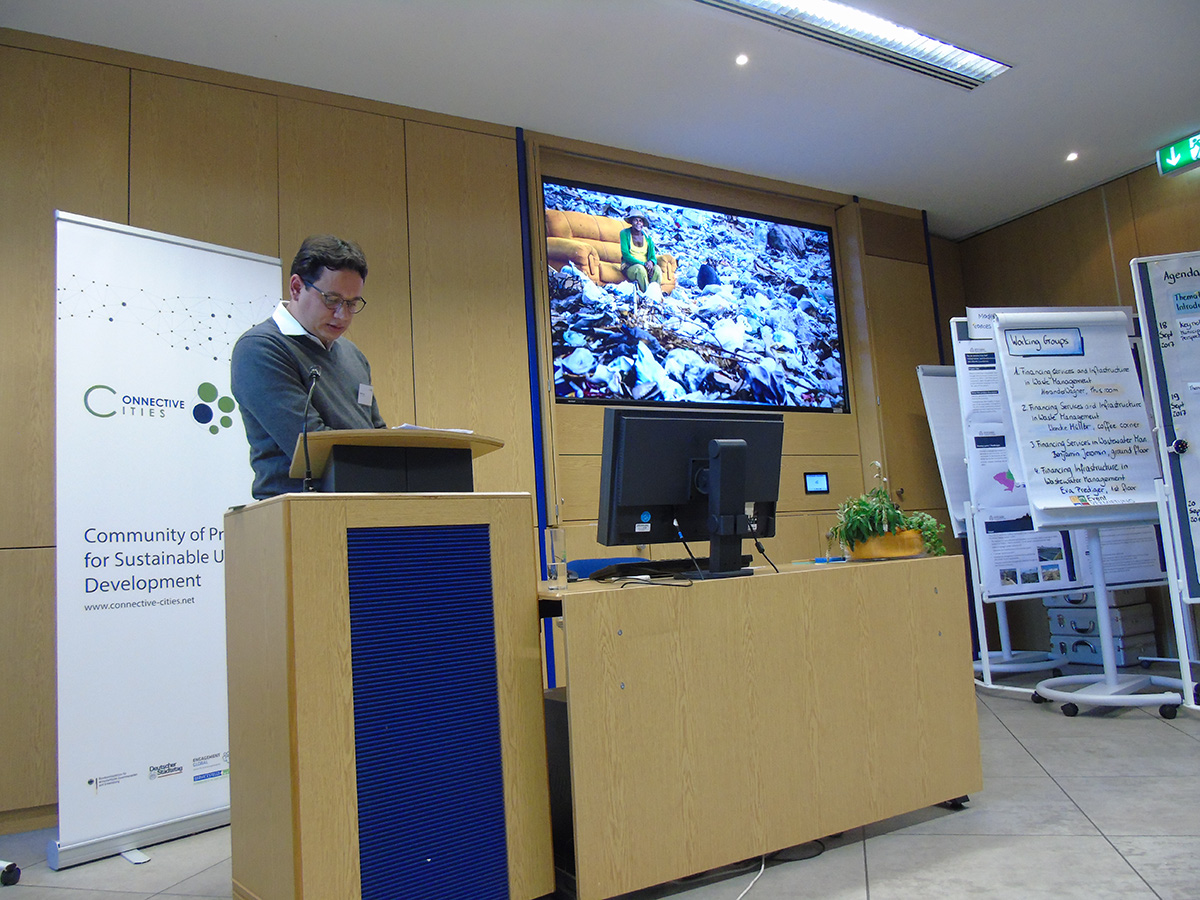
Presentations
Identifying possible action steps
Alexander Wagner, Connective Cities
Connective Cities: follow up activties and examples of Joint Projects
Dr. Britta Milimo, Serviceagency Communities in One World
Financial and HR Instruments to Support Municipal Development Cooperation
Action Planning
Benjamin Jeromin, Connective Cities
Action planning tools and Support options
Good Practices Presentations
Working Group 1
Al Doha, Palestinian Territories
Financing solid waste management in Al Doha: service provision and infrastructure
Tomakivka, Ukraine
Financing of services on the removal of solid household waste for the population
Bilozirya, Ukraine
Financing of solid household waste removal services in Bilozirya
AVG Cologne, Germany
Financing a fermentation plant
Working Group 2
COMLURB, Brazil
Remediation without investments: turning an open dump into a sanitary landfill in Rio
MIZUDA Group Co., China
PPP in financing waste management infrastructure
Bethlehem, Palestinian Territories
Rehabilitation of waste collection unit in the Old Market
Shirokivska, Ukraine
Financing garbage disposal and re-utilization services in Shirokivska
Working Group 3
Sachsen Wasser, Germany
Consulting Services for Accompanying Measures for Wastewater Collection and Treatment in Bihać, Bosnia-Herzegovina
BORDA, Germany
Fecal sludge management in Leh, India
Al Ubeidyeh, Palestinian Territories
Cooperation between municipality and local community in developing a financial plan to establish and manage waste water in Al Ubeidyeh
Fundação Rio-Águas, Brazil
Model of municipal wastewater management through concession of part of the area of Rio de Janeiro
Working Group 4
Hamburg Wasser, Germany
Financial structure in a long-term asset environment
Shatsk, Ukraine
External financial investment into the sewage treatment system within the area of the Shatsk Nature Reserve
Nablus, Palestinian Territories
Financing of Nablus Wastewater Treatment Plant and sewerage networks in Nablus
Results
The participating cities and municipal companies took advantage of the several exchange opportunities provided within the event methodology to present their challenges and get peer advice as well as to elaborate draft project plans with concrete activities to take back to their municipalities. In the framework of the action planning session specific project ideas emerged including the development of a business concept for a fermentation plant, the enhancement of cost efficiency in waste management through sorting and recycling activities and the development of a financing plan for decentralized sewage solutions. For each project idea the municipalities identified also specific follow up instruments that Connective Cities will provide to support them further in the implementation process. Several expert missions will be organized in the follow-up of the event.
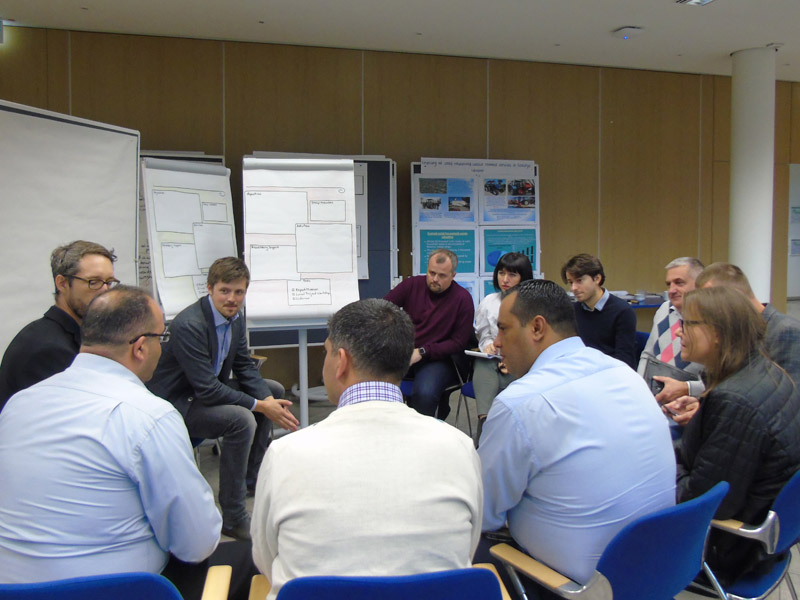
Report
<link file:4938 download internal link in current>Financing Mechanisms for Municipal Sanitation Services
Ensuring Sustainable Local Service Provision and Infrastructure
Connective Cities Dialogue Event, 18 – 20 September 2017, Cologne, Germany
Author: Sabine Hammer, Alexander Wagner
Publisher: Connective Cities
[pdf, 1,1 mb]


